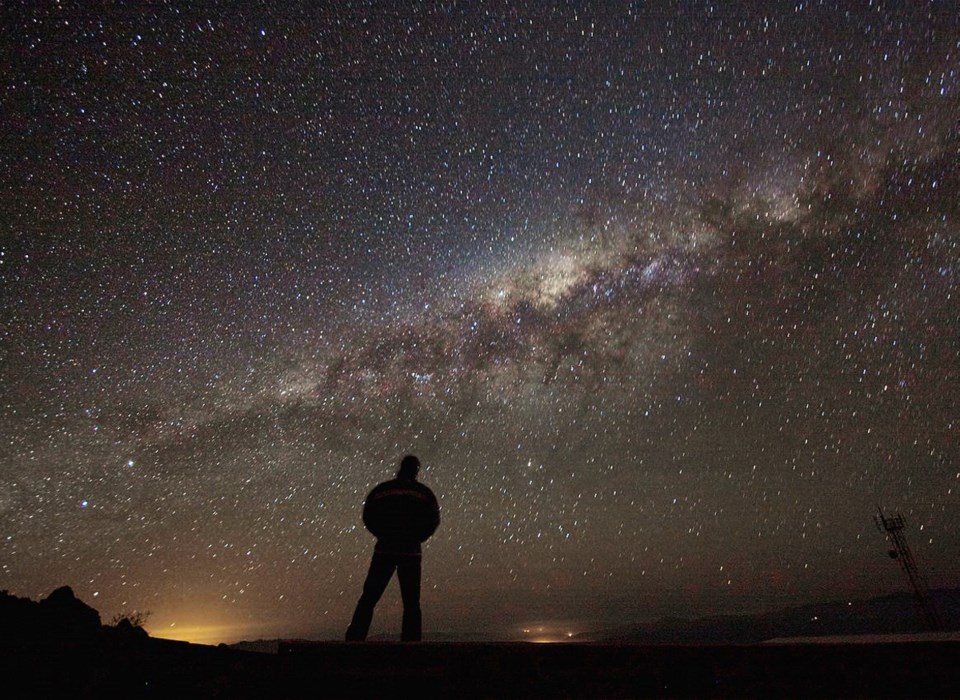I have never lost the sense of awe I experienced one night as a teenager as I lay down in a dark spot and really looked at the Milky Way. It was overwhelming and humbling to realize what a small part of the galaxy our own seemingly vast solar system is, and what a tiny part of all that I am.
But it also gave me a strong sense of my connectedness to the universe, a sense that has never left me. I can get much the same sense of awe and connection by looking at the immensity of the ocean or a mountain, or the beauty of a butterfly or a flower.
But many people, perhaps most of us these days, have lost that connection — or at least experience it too infrequently. A vivid illustration of our loss of connection comes from Los Angeles, where in 1994, an earthquake knocked out power. According to a subsequent report in the journal Environmental Health Perspectives: “Many anxious residents called local emergency centres to report seeing a strange ‘giant, silvery cloud’ in the dark sky. What they were really seeing — for the first time — was the Milky Way, long obliterated by the urban-sky glow.”
Sadly, this loss of any awareness of the night sky is hardly surprising. The first world atlas of the artificial night sky brightness tells us: “Two-thirds of the U.S. population and more than one-half of the European population have already lost the ability to see the Milky Way with the naked eye.” But if we can’t see the stars, how do we know our connection to and place in the universe?
At a somewhat smaller scale, how many people realize that we are almost at the midwinter solstice? For that matter, how many pay attention to the midsummer solstice, the spring and fall equinoxes and the phases of the moon? But for most of our history, these have been of immense significance to humans, helping to connect us with the great cycles of nature.
We often forget — or perhaps choose to ignore — that many of our various faith-based celebrations have been superimposed on these much older traditions. Christmas itself is about the birth of a child, the “light of the world,” just as the winter solstice marks the return of the sun and the birth of the new year, while Hanukkah is also a festival of the light. Indeed, the later Romans celebrated Sol Invictus, the birth of the invincible sun, on Dec. 25, thought to be grafted on to an older cult of the sun.
Many of the aspects of our modern celebration of Christmas — bringing green boughs and trees into the house, lighting fires and candles, hanging mistletoe — have their roots in pagan traditions such as yule, and it seems fires and lights were an important part of the celebration of the winter solstice in many cultures.
Other celebrations are related to the lunar calendar. Easter and Passover are tied to the full moon around the time of the spring equinox, while Sukkot (a Jewish harvest festival) and the Christian tradition of harvest festivals are also around the time of the fall equinox. They are reminders that we were once deeply connected to the seasons and the Earth.
But too many people, indeed much of society, have lost touch with nature, which is part of the reason we are in such environmental trouble. Yet while we might imagine that our technology and our cleverness have made us separate from — and even superior to — nature, that is far from the truth. We are as dependent upon nature as we ever were. It is still where all our food, water, air, fuels and materials come from.
If we could but experience that sense of wonder, awe and connection that our ancestors felt — and perhaps some of the fear, too, for nature’s power remains immense — we might treat the Earth with more respect. So take a few moments this week to contemplate the turning of the year. Go out and look at the night sky, admire the ocean and the flowers, because we need more than ever to re-establish our connection with nature. Happy Solstice.
Dr. Trevor Hancock is a retired professor and senior scholar at the University of Victoria’s School of Public Health and Social Policy.



